2014 Stumpjumper FSR Expert Carbon EVO
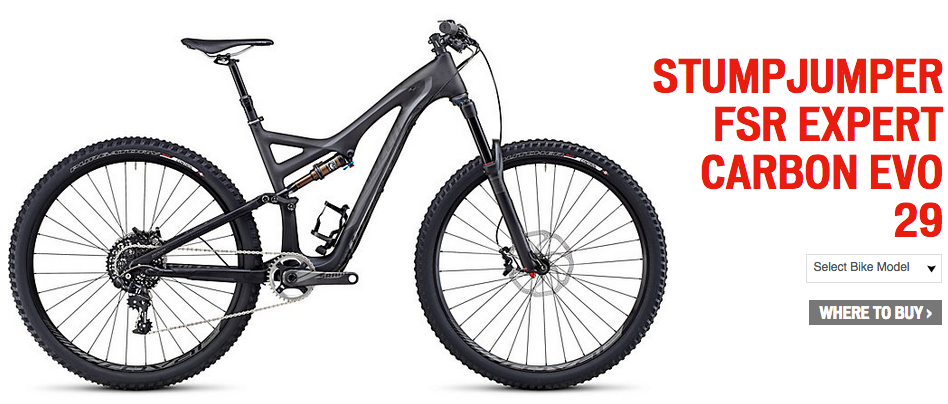
I just spent the weekend teaching on a 2014 Stumpjumper FSR Expert Carbon EVO 29. The bike rips up and down, and you can get a screaming deal on it.
All the sweet bikes and parts. Mmm … parts.

I just spent the weekend teaching on a 2014 Stumpjumper FSR Expert Carbon EVO 29. The bike rips up and down, and you can get a screaming deal on it.
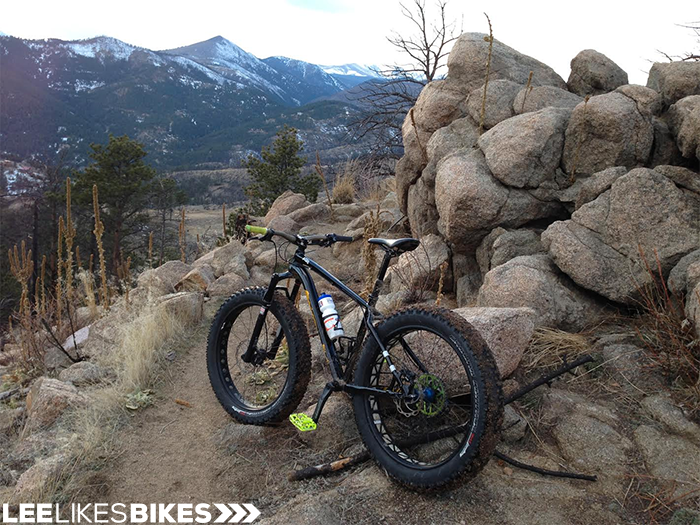
I have a Specialized FatBoy for a week. Saturday morning we did backyard funny business. Later that afternoon, I rode dirt roads and singletrack from the house.
Notions:
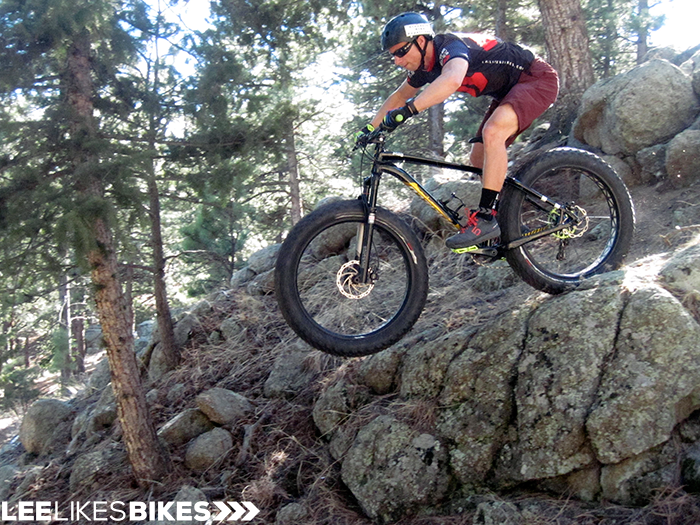
A few days ago we got a foot of powder in the backyard. Yay! Freshies!
I grabbed a loaner FatBoy with visions of snowy radness.
The snow melted — but we still have radness.
Meet my new friend. We’ve only hung out a few times, but we’re starting to get along pretty well.
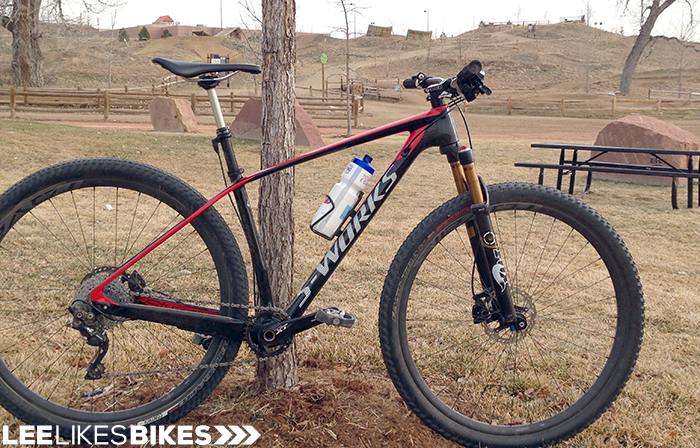
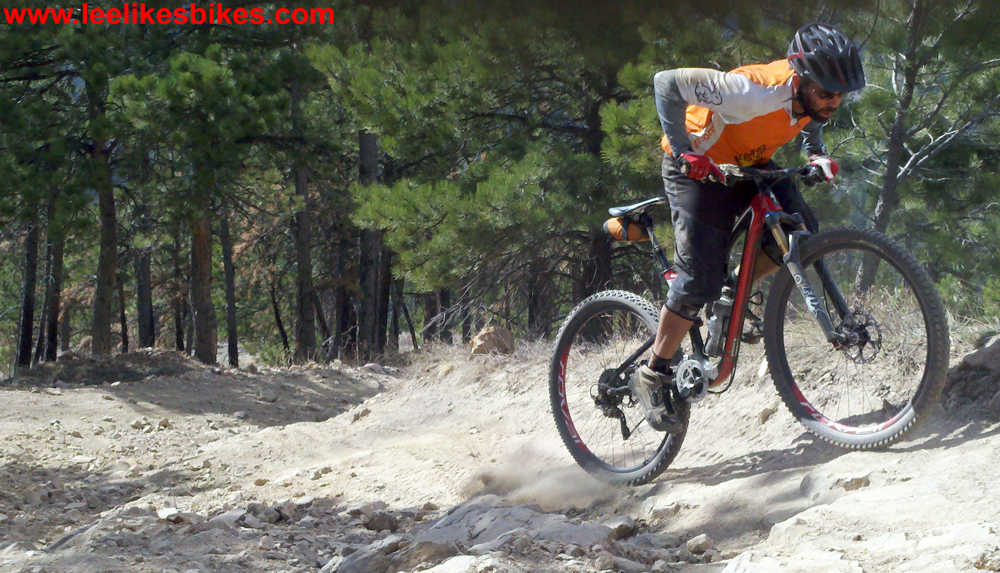
1×11 drivetrains are all the rage. They promise to be simpler, lighter and more hardcore than multi-ring setups.
But is the lowest gear low enough for you?
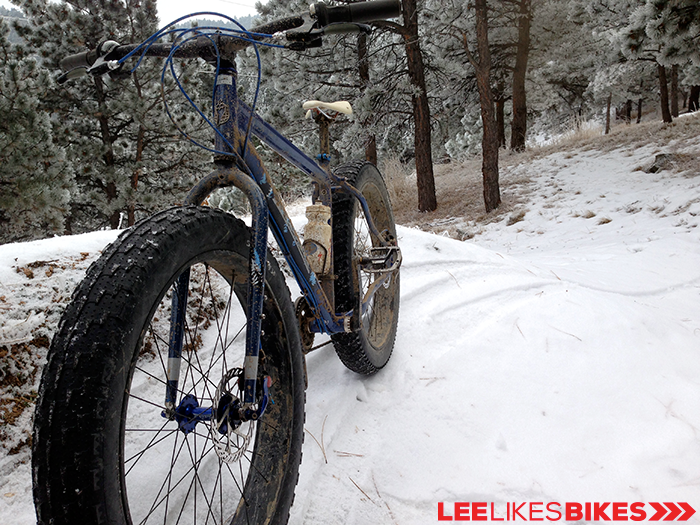
Yesterday’s dirt[mud/ice/snow]road ride wasn’t super exciting (Ride #1 on a fatbike).
Today, I rode in my back yard. And it was awesome.
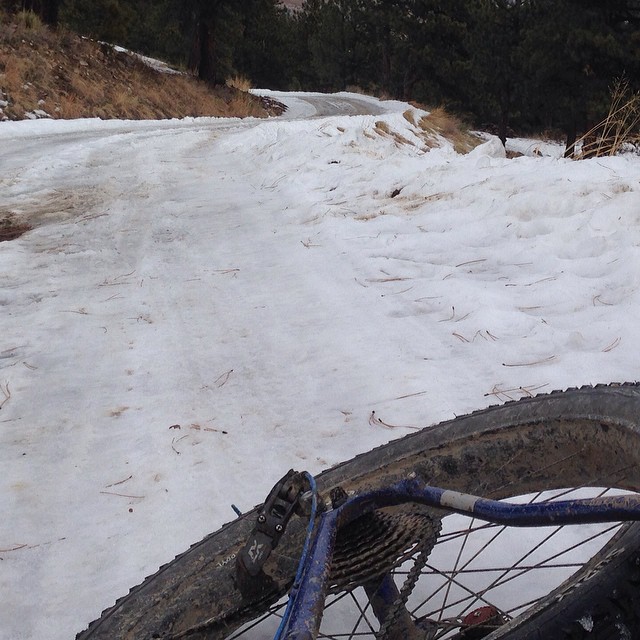
Not to be crass, but I am no longer a boy.
I am a man. A fatbike man.
We’ve all heard everyone gush about their fatbiking experiences. Here are my first-ride impressions:
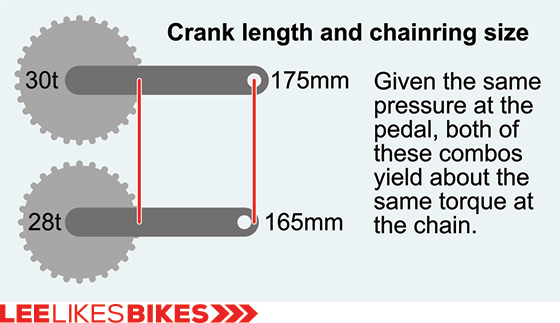
Hey Lee,
Happy new year! Quick question: Am I crazy for wanting to put 165mm cranks on my new Specialized Stumpjumper EVO? My inseam is 32 inches, and I ride aggressive trail, with some XC racing. I hope to squeeze in more pedal strokes in these tight Squamish trails, have more ground clearance and hopefully increase my average wattage by spinning a smaller, faster circle. What are your thoughts?
Nathan

Traditional gear-inch calculations divide chainring by cog, then multiply by wheel diameter. The resulting number lets you compare gearing combinations, but it has no bearing on real life.
If you’re gonna be a nerd, be an informed nerd.
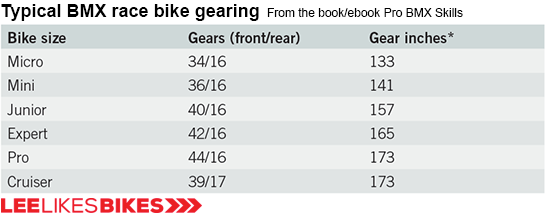
Hi Lee,
Thank for your fast reply … the download link to the Pro BMX Skills ebook works well! I went through the pages quickly and it is very interesting. It’s very difficult to find this kind of book in France.
I had a question/observation … I’m very surprise by the gearings recommended in the book. For example, the book recommended 40/16 for junior and in France it’s common to have 37 or 38/16. Why this difference?
Thx !
Sebastien
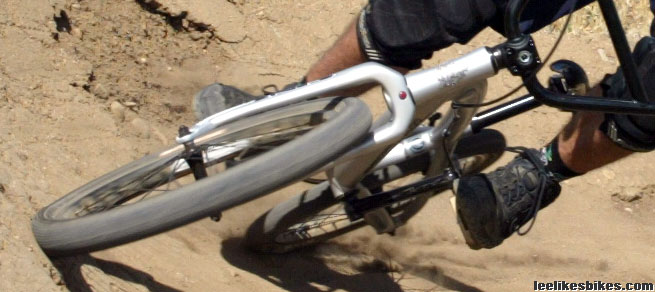
In the old days we rode 26x2ish tires, and that was it. There were no other options and nothing to worry about. And we were happy.
26, 27.5, 27.5+, 29, 29+ … the list of mountain bike wheel options keeps growing.
More choices are better, right?

Shorter stems usually create a more functional riding position, which is awesome.
Here’s another benefit of shorter stems: A simpler handlebar path.
